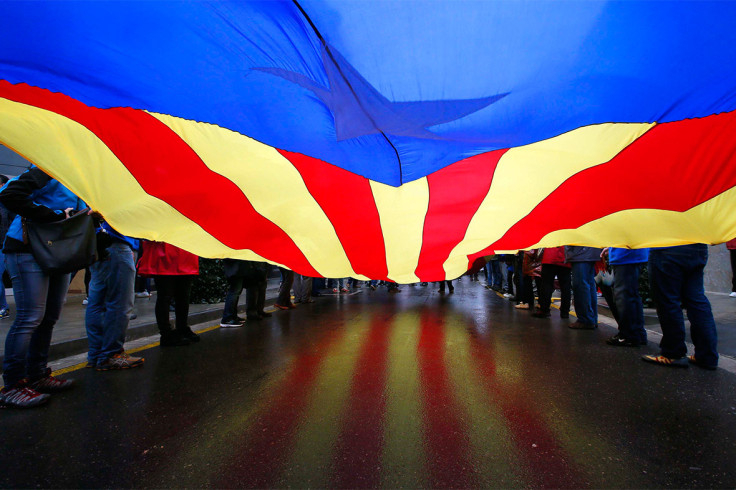Spain: Mariano Rajoy and Artur Mas Hold Last-Ditch Talks as Catalan Independence Debate Reaches Crisis Point

Catalonian President Artur Mas has told the Prime Minister of Spain he intends to push ahead with plans to hold a secession referendum in November, despite last ditch crisis talks held between the two men this afternoon to try and resolve the bitter dispute surrounding Catalonia's independence.
Today's meeting followed months of attempts by political parties and business groups for Spanish Prime Minster Mariano Rajoy and Catalonia's Artur Mas to sit down and come up with a resolution that prevents the referendum from going ahead.
But the talks broke down after two hours with no resolutions in place.
Despite this, the Catalan leader has spoken optimistically to local media. Mas said he is happy for the "climate of open dialogue" with Rajoy and claimed that "today hasn't closed all the doors, quite the opposite." However Mas maintained that the disagreement between the two men is total.
"We maintain that we want to have a referendum inside a legal framework and, if possible, with the agreement of Spain", Mas said, however "he [Rajoy] has reiterated to me that he considers the referendum is illegal" and did not offer an "alternative proposition."
The referendum isn't encompassed by our democratic laws. This referendum isn't going to happen because it is illegal and is outside the boundaries of our rule of law.
Although the Catalans are desperate to proceed with the referendum, with thousands wishing to secede from Spain, such a ballot would be illegal under Spanish law and Prime Minister Rajoy has repeatedly said he will not sanction it.
Alicia Sanchez-Camacho, president of Rajoy's party in Catalonia, said today: "The referendum does not, and will not, have legal coverage.
"The referendum isn't encompassed by our democratic laws. This referendum isn't going to happen because it is illegal and is outside the boundaries of our rule of law."
Representing Rajoy following Wednesday's meeting, Camacho also said, "in today's world, those states which are strong and united are the most important, and most necessary."
Economic recovery
Catalonia, which comprises the four provinces of Barcelona, Girona, Lleida and Tarragona, is Spain's richest region, and its 7.5 million residents make up 16% of Spain's population.
The independence campaign holds profound consequences for Spain as it emerges from the worst economic crisis seen in a generation.
Europe will be watching developments in the country closely as Scotland prepares to hold its own independence referendum in September.
Pro-independence sentiment in Catalonia has grown in recent years, fuelled in part by politicos who believe the region deserves greater economic autonomy and more devolved power from Madrid. Many Catalans particularly resent the fact that their region is denied the power to raise its own taxes.
In the proposed referendum, currently set to go ahead on 9 November, the regional government will ask voters in Catalonia if they want the region to become its own state, and if so, should it be independent.
A poll in April showed that a strong majority of Catalan people want the ballot to take place, but only around half favour full independence.
Spanish legislators and central government overwhelmingly reject the notion of a referendum, arguing that people in Catalonia should not be able to decide on something that affects the whole of Spain.
© Copyright IBTimes 2025. All rights reserved.





















